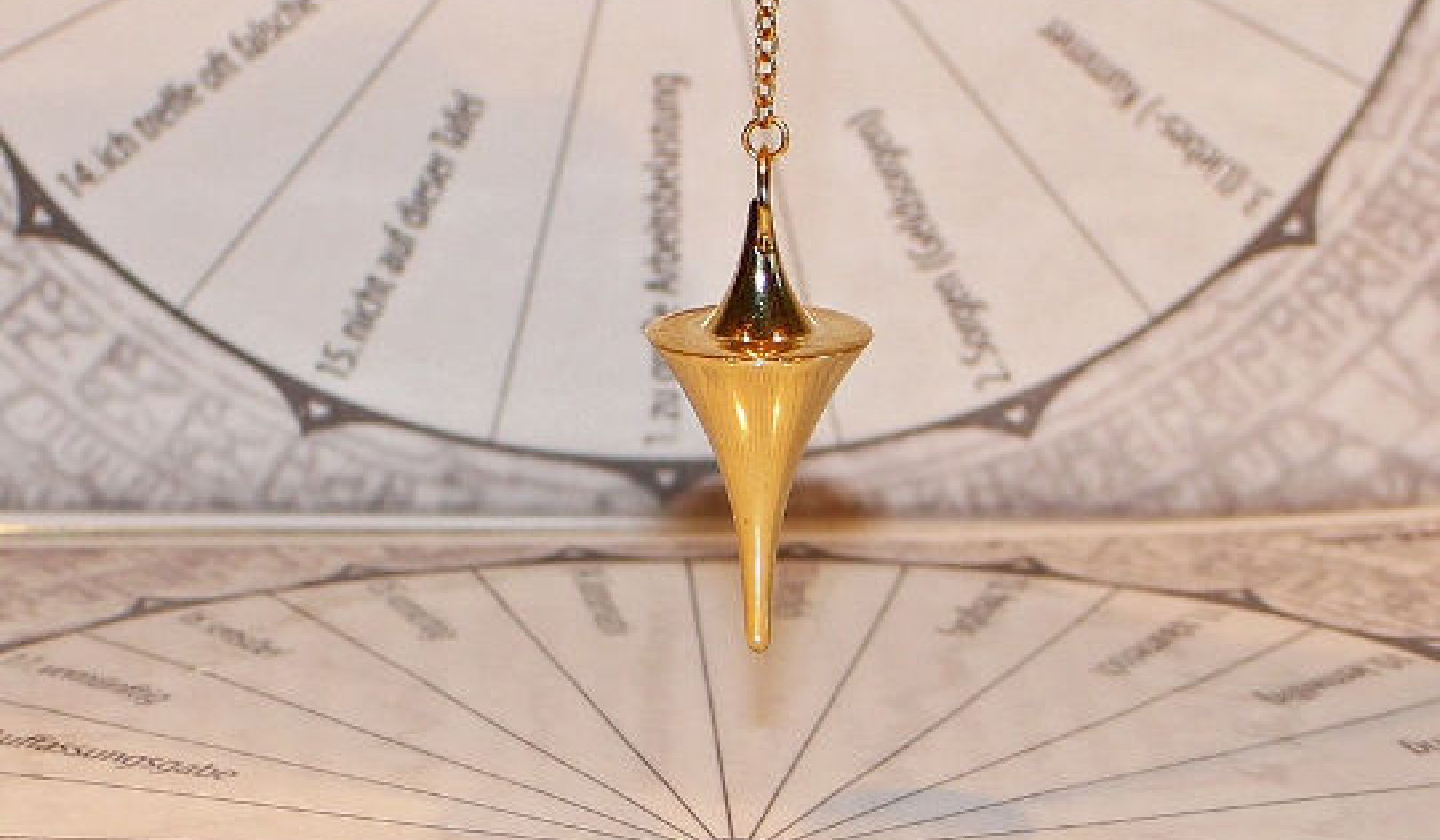
One of the most popular philosophers of the twentieth century, Alan Watts illustrated the limitations in the way we view ourselves by telling the story of a young man who approached him one evening after a lecture.
The smiling young man began proudly telling Watts about his girlfriend and how wonderful she was. Eventually, he pulled out his wallet and opened it to show Watts a photograph of his beloved. It was a standard, wallet-sized photo, 2 1/2 inches by 3 1/2 inches. The young man smiled proudly and lovingly. "That looks just like her!" he said, pointing to the photo. "Really?" said Watts. "Is she that small?"
The point is that we often see ourselves symbolically more readily than seeing who and what we really are. We do the same thing with the world around us. Think of how many times we have found ourselves in beautiful natural surroundings, looking directly -- in absolute awe -- at something like the Grand Canyon, Niagara Falls, or Mount Rainier.
Suddenly, someone nearby will say, "It looks just like a postcard!" We nod enthusiastically in agreement. We rarely notice, and hardly ever question, the bizarre, skewed manner in which our perceptions have become distorted. For many of us, a photograph is more familiar, more recognizable, than the real thing.
Rediscovering Our Inherent Connection with the Natural World
We are part of a whole. When we live in artificial, human-made, climate-controlled environments, we don't learn to tune to the flow of nature. We don't develop the capacity to understand our dependence on and interconnectedness with the natural world. In the absence of direct immersion in the natural world, we lose the awareness of our inherent connection with it.
In fact, modern Western culture, supported by sometimes questionable interpretations of biblical teaching, has long held the notion that humankind is destined to dominate nature. Certain forms of Christianity, in particular, have tended to see human beings as separate from the natural world, a belief that has engendered a profound arrogance, an indifference to the health and well-being of the environment, and an indifference to the overall health and well-being of humanity.
At the same time this teaching gives us the false hope that every disease can be cured and every problem in the natural world can be corrected through human intervention. This attitude has put us on the path to destroying our planet through wanton pollution of our air and water and ceaseless depletion of the earth's natural resources. We have consistently believed that the problems we are creating, if there are any, are exaggerated. We believe we will have plenty of time to find solutions later.
Do We Have A "Happily Ever After" Complex?
Our culture has readily subscribed to the notion that every story can have a happy ending and that every individual is supposed to live happily ever after. We have become quite capable of blithely ignoring the inherent dangers and uncertainties in our physical universe, and the inherent dangers and negative consequences of our unwise actions.
Many philosophical materialists -- including Sigmund Freud -- have suggested that our fascination with the afterlife is but one more delusional projection of our "happily ever after" complex. The suggestion is that many people who embrace the notion of a glorious afterlife do so in the absence of clear and direct experience. Whether or not there actually is an afterlife is somewhat inconsequential for most people, who believe there is simply because it gives them comfort. Most people hold tenaciously to that belief without any corroborating evidence or experience.
There is an enormous difference between believing something simply because someone else has told us it is true and experiencing that it is true because we have direct, firsthand knowledge about it. It is the difference between the certainty of those who have had a near-death experience and those who believe in the afterlife simply because they have been told it exists. It is the difference between the certainty of those who have had a profound experience of mystical connection with God and those who believe in the potential of connection with God simply because they have been told about it.
Freud also asserted that it is impossible for the human ego to imagine its own extinction. That is, he believed our minds cannot comprehend the fact that we will inevitably die. He suggested, therefore, that our minds construct ideas about eternal afterlife primarily because of the fear engendered by our ego's inability to imagine its own death.
While Freud intimately grasped certain aspects of the human mind and was the first to map out many levels of the conscious and subconscious minds in an insightful manner, he failed to grasp the totality of who we are and how our minds function.
Our Intuitive Hearts Literally Know Everything
 From the spiritual perspective, it is important to remember that our intuitive hearts literally know everything. We know Truth. No matter how often we ignore our intuition, no matter how much effort and energy we put into denying and ignoring the realities of life in the world of form, no matter how skilled we become at ignoring the part of ourself that is wise, there is still always a part of us that knows the truth. No matter how much we ignore the fact that we are all going to die, there is always a core awareness within us that knows we are. No matter how much we ignore the fact that our everyday thoughts and actions have far-reaching and long-lasting consequences, there is always a core awareness within us that knows these things.
From the spiritual perspective, it is important to remember that our intuitive hearts literally know everything. We know Truth. No matter how often we ignore our intuition, no matter how much effort and energy we put into denying and ignoring the realities of life in the world of form, no matter how skilled we become at ignoring the part of ourself that is wise, there is still always a part of us that knows the truth. No matter how much we ignore the fact that we are all going to die, there is always a core awareness within us that knows we are. No matter how much we ignore the fact that our everyday thoughts and actions have far-reaching and long-lasting consequences, there is always a core awareness within us that knows these things.
And no matter how much we ignore the fact that we are all connected, that we are all one... there is always a core awareness within us that knows we are.
What we most often ignore is actually the most important dimension of our being -- our identity as a soul. From the standpoint of our soul, we are infinite, eternal beings of Light. We are permanently connected to, and in all essential respects one and the same with, God. To see ourselves as anything less than this, to think that our finite bodies, minds, and personalities are the totality of our existence, can only lead to a sense of incompleteness and despair. Because there is always a subtle, quiet place within us that knows the Truth of our magnificence. To live and think and act as if we are less than we really are brings enormous dissatisfaction.
So much of our suffering in life is caused by the practice, fully supported by our culture, of ignoring these truths. So many of our problems arise from a fundamental disconnection with our own awareness, our own wisdom, and the natural world. Once we disconnect ourselves from what we know, and what is real, we are free to careen headlong into illusory beliefs and bizarre behaviors. None of those beliefs and behaviors, rooted in illusion, can ever bring lasting happiness.
Once we believe we are our body and our personality, we will continually pursue happiness where it can never be found. Once we believe that our happiness comes from wealth, possessions, fame, youth, power, sex, narcotics, or alcohol, we become capable of acting in extraordinarily ruthless and selfish ways to get what we think we want. And once we believe that it is actually possible or is our divinely ordained right to subdue and dominate the natural world, we become capable of thinking and acting in bizarre, disconnected ways.
But the very same mind that makes us miserable can also lead us to joy.
At Our Core All Humans Are Kind, Loving, and Compassionate
Buddhist teaching affirms that at our core all humans are kind, loving, and compassionate. This loving, compassionate kindness is sometimes referred to as our "true nature," or our "Buddha nature." Although there is usually some significant effort required as we strive to come into harmony with our true nature, the process involves unfolding -- or unearthing -- that which is already within us, not adding something we didn't already have. Buddha suggests that only the full awareness of our true nature and learning to live in harmony with it can bring us happiness.
A few years ago, a number of Western psychologists invited the Dalai Lama to join them for a conference on the similarities and differences between Western psychology and Buddhist psychology. At one point, one of the Western psychologists mentioned the term low self-esteem. He spoke the words in passing, almost with a sense that it was an inevitable characteristic of the human mind and therefore a given in human experience.
The Dalai Lama looked stunned. He said he didn't understand. He wasn't sure what the concept of low self-esteem meant. He asked that it be translated into his native language. His translator struggled for a few moments. Eventually, his translator concluded that there is just no way to translate low self-esteem into the Tibetan language. In Tibetan culture, there is no such concept. When the Dalai Lama began to grasp what the term meant, a strange look of compassion and wonder spread across his face. At that moment, his very sweet, deliciously expressive face seemed to say, "Oh my goodness, can Westerners ever come up with some extraordinary ways to suffer!"
A Culture Where Low Self-Esteem Doesn't Exist!
 Can you imagine living in a culture where low self-esteem doesn't exist?
Can you imagine living in a culture where low self-esteem doesn't exist?
In the Tibetan Buddhist culture, and in many other non-Western cultures, when a child is born, the entire community gathers to celebrate the birth of a celestial being, a being of Light who has come to earth to bless us. An angel, a divine being, has taken form to be among us, to help us, and to bring more Light into the world.
In our culture, a new birth is also greeted with great celebration. But while we enjoy the cuteness, beauty, and innocence of a newborn infant, much of our momentary joy is colored by anticipation and expectation. We say, "Oh, what a beautiful baby! Maybe she'll go to Harvard some day. Maybe he'll be President of the United States! Maybe she'll be a doctor! Maybe he'll be a famous movie star. Maybe she'll invent the drug that cures cancer!"
We are creating the sense that infants are not enough just as they are. They may be beautiful, and we may be joyful that they have been born, but the real meaning and importance of their life will come later. We begin telling our children -- and thus ourselves -- that our value as human beings will be measured by how much we can collect, achieve, and accomplish. The message is that our arrival on earth is not so much a gift as it is the beginning of a contest... a relentless quest to prove ourselves worthy of love.
Western culture has undeniably been affected by the peculiar Christian doctrine of original sin, which posits that as soon as we are born, we have already lost our connection with God. We therefore, as a culture, have a difficult time perceiving the essential spiritual purity of children, the fundamental completeness of their being. Most of us, from the moment of our birth and for the rest of our life, are constantly striving to be redeemed, to overcome our "sinfulness," to compensate for our fundamental lack of worthiness. We spend our lives striving to feel that we are acceptable in the eyes of our Creator and in the eyes of humanity.
We teach children that it is what they become that will determine their worthiness to be loved and to be happy. They must learn, and do, and produce. They must impress us. This is the essence of socialization and acculturation in modern Western culture. We become other-directed rather than inner-directed, looking outside ourselves for happiness, approval, and fulfillment. We look into the eyes of others -- first our parents, then other adults, then our relatives, our friends, our community, and our peers -- to see if we are okay. We spend much of our lives asking, "Am I enough? Do you love me? Do I look good? Have I done a good job? Am I complete yet?"
And for most of us, the culture keeps answering no.
Even when the answer is yes, our training is so ingrained that we can never seem to feel we have gotten enough approval.
No matter how good we become at achievement, there is almost always someone better than us. No matter how rich we become, there is usually someone wealthier. No matter how much power we amass, there is usually someone more powerful. No matter how beautiful we become, there is usually someone more beautiful.
The vast majority of us have not and will not achieve the pinnacle of success as defined by our culture... the pinnacle of beauty, strength, wealth, athletic prowess, intellectual achievement. Most of us are, in worldly terms, rather average.
And we are never at a loss for reminders of our shortcomings, at least in the eyes of the culture. Just look at any magazine for the messages being sent by the mainstream media. One of the first things that becomes clear is that, as a culture, we are obsessed with beautiful, slender, youthful, toned bodies and wrinkle-free faces. We are addicted to the notion that we can win the lottery, win the big game, remake ourselves into whatever we perceive the culture holds as an ideal. We believe that doing so will make us happy.
Through our media, we are also constantly surrounded by images of violence and images that depict violence as entertainment. We are fascinated by murder, brutality, and depravity. We encourage dishonesty, selfishness, greed, and anger. We think that the naked human body, as God created it, is not to be seen by children. But we bombard them with images of sexuality and images that equate sexuality with happiness and success.
Rarely do we offer our children magazines, television programming, advertising, and movies that promote kindness, generosity, compassion, and wisdom. Instead, they receive, each and every day, messages that tell them that they can be happy only if they look like this, wear this, drive this, put this on their hair, eat this, smell this way, invest their money here, have this dream home, take this drug, take this dream vacation, find the perfect mate, lose this much weight...
Our culture is so attached to youth that we will do almost anything to pursue the illusion of holding on to it. We have creams, dyes, pills, potions, and gels designed to help us erase the effects of aging. We can color our hair and erase our wrinkles. Cosmetic plastic surgery has become a widely accepted, mega-billion-dollar industry in our culture, constantly advertised and fully supported with widespread cultural approval. Medical statistics show that more than 10.2 million cosmetic surgery procedures were performed in the United States in the year 2005. And that number is expected to increase every year for the foreseeable future. We even have a number of television reality programs dedicated to following the lives, practices, and procedures of plastic surgeons and their patients.
In contrast, in many non-Western cultures it is the elders who are most appreciated because they have the greatest wisdom, knowledge, and experience. The elders are the ones who have lived long enough to know a great deal about life, about what is important, about the things that have real and lasting value.
Just A Slight Change In Perception
 Right now, as you are reading this, starvation continues to be one of the greatest causes of human suffering in nearly every corner of the globe. Every five seconds, somewhere in the world a child dies of starvation. Despite all of the extraordinary economic, agricultural, and medical resources we have at our disposal, despite all of the advanced technology and knowledge we have at our fingertips, and despite all of the abundant wealth we possess, there are still many cultures where two parents have to give birth to ten children in order to have one who reaches the age of twelve. Yet so much of what we have could so easily and gracefully be shared with others.
Right now, as you are reading this, starvation continues to be one of the greatest causes of human suffering in nearly every corner of the globe. Every five seconds, somewhere in the world a child dies of starvation. Despite all of the extraordinary economic, agricultural, and medical resources we have at our disposal, despite all of the advanced technology and knowledge we have at our fingertips, and despite all of the abundant wealth we possess, there are still many cultures where two parents have to give birth to ten children in order to have one who reaches the age of twelve. Yet so much of what we have could so easily and gracefully be shared with others.
At this very moment, our own culture suffers from an abundance of overeating and obesity. The resultant health problems are enormous, creating an extraordinary burden on our health-care system. In our culture millions of people spend billions of dollars on products and programs designed to help them lose weight. And millions of people freely spend billions of dollars on plastic surgery they don't need.
With just a slight change in perception, just a slight adjustment, we always have the opportunity to see life differently. What is required is learning how to let go of the neurotic, shortsighted, culturally bound notions of who we are and what our lives are about. When we can do that, a vast new universe of possibilities -- for happiness and fulfillment -- opens up before us.
"Just because a lot of people believe something doesn't make it true."
There is one helpful principle to keep in mind as we begin to evolve toward recognizing the awesome nature of who and what we truly are: "Just because a lot of people believe something doesn't make it true."
There was a time when nearly everyone on earth believed that the earth was flat. It took a few courageous, unintimidated explorers to help us all know the truth. A handful of special people had an intuitive sense that things were not the way most people believed them to be. The explorers were willing to take great risks to advance our understanding.
For the past five hundred years, as a result of their uncertain and perilous journey, the rest of the human race has benefited from a much more accurate knowledge of ourselves, our planet, our universe... and our place in the cosmos. And in the years and decades to come, the human race can benefit from the inner exploration you are embarking on.
Each of us is a soul. Our soul possesses a natural transcendent capacity for eternal joy, right at the core of our being. That place of transcendent joy endures through anything and everything that happens to us. There is a part of us, an abiding realm of consciousness, that has never changed, not even slightly, since before we were born.
It doesn't change as we get old.
And it doesn't change when we die.
The only true happiness in life, the only true security, comes from growing into a full awareness of this formless, infinite, eternal soul. Anything we have identified as who and what we are -- a male, a female, a husband, a wife, a widow, a widower, a father, a mother, an old person, a child, an American, an intellectual, an athlete, a beautiful person, an unattractive person, a success, a failure, wealthy, poor, ambitious, lazy -- is just an illusion.
These identities are illusions because they are all transitory. They are subject to change, decay, and death. Collectively, they form the incredibly limited, culturally defined, hopelessly distorted lens through which we view ourselves. But these distorted perceptions have nothing to do with who we truly are.
Reprinted with permission of the publisher,
New World Library, Novato, CA. ©2007/2010.
www.newworldlibrary.com or 800-972-6657 ext. 52.
Article Source
When Prayers Aren't Answered: Opening the Heart and Quieting the Mind in Challenging Times
by John Welshons.
 With insights gathered from the world’s great spiritual traditions, John Welshons shows how to use painful circumstances as fuel for enlightenment. In short, step-by-step chapters, he shares stories of transformation from his own life and the lives of those he has counseled. With deep empathy, he lights a path toward the communion, peace, and joy that are possible when we open our hearts to life in its totality.
With insights gathered from the world’s great spiritual traditions, John Welshons shows how to use painful circumstances as fuel for enlightenment. In short, step-by-step chapters, he shares stories of transformation from his own life and the lives of those he has counseled. With deep empathy, he lights a path toward the communion, peace, and joy that are possible when we open our hearts to life in its totality.
For More Info or to Order This Book (hardcover) or paperback (new edition/new cover).
About the Author
 John Welshons is the author of When Prayers Aren't Answered and Awakening from Grief. A much sought after speaker who offers lectures and workshops on terminal illness, grief, and other topics, he has been helping people deal with dramatic life change and loss for over 35 years. He is the founder and president of Open Heart Seminars and lives in New Jersey.
John Welshons is the author of When Prayers Aren't Answered and Awakening from Grief. A much sought after speaker who offers lectures and workshops on terminal illness, grief, and other topics, he has been helping people deal with dramatic life change and loss for over 35 years. He is the founder and president of Open Heart Seminars and lives in New Jersey.
Visit his website https://onesoulonelove.com/


























